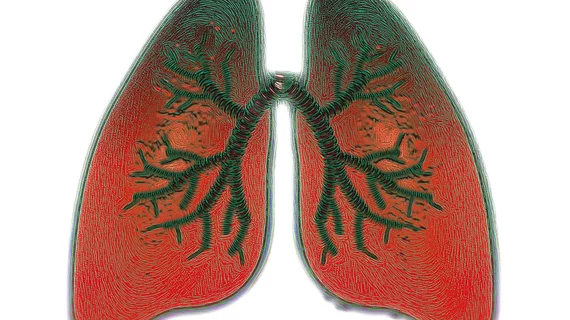Digital biomarker tool for rapidly identifying lung fibrosis cleared by FDA
The U.S. Food and Drug Administration has cleared the use of an AI-powered digital biomarker technology that aids in the swift diagnosis of lung fibrosis, utilizing images of a patient’s lungs without the need for invasive procedures.
Fibresolve—developed by biotech company Imvaria—guides clinicians as they attempt to examine the lungs for signs of pulmonary fibrosis, improving the detection of this potentially life-threatening disease. Further, Fibresolve is able to run patient data through its algorithm to recommend effective treatment options.
In a statement, Imvaria said the clearance signifies the first FDA authorization of a diagnostic tool of any type in lung fibrosis. Fibresolve previously earned an FDA breakthrough designation, typically given to technologies and therapies that are at the forefront of medical innovation.
"The FDA’s authorization of Fibresolve marks a significant milestone, not only for lung fibrosis patients, but also for the advancement of AI-based healthcare technologies," Joshua Reicher, MD, co-founder and CEO of Imvaria said in the statement. "The medical community, along with health insurance companies, now has a viable, cost-effective option making AI highly practical, useful, and easy to incorporate into medical practice for the thousands of pulmonologists who treat patients with lung disease."
The authorization will allow Imvaria to expand its market reach and provide medical settings with Fibresolve, which the company said could save patients and providers thousands of dollars on each examination of the lungs.

